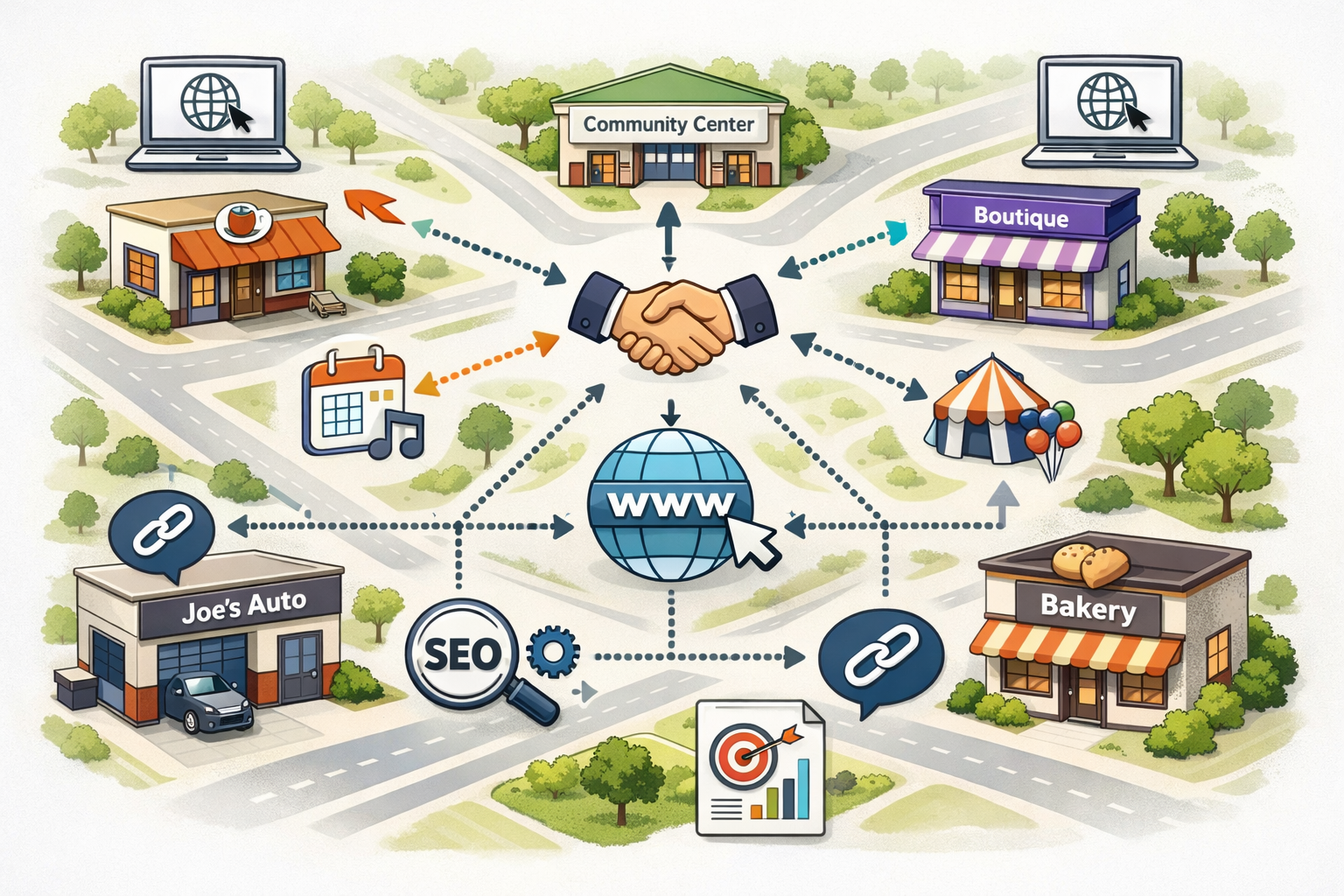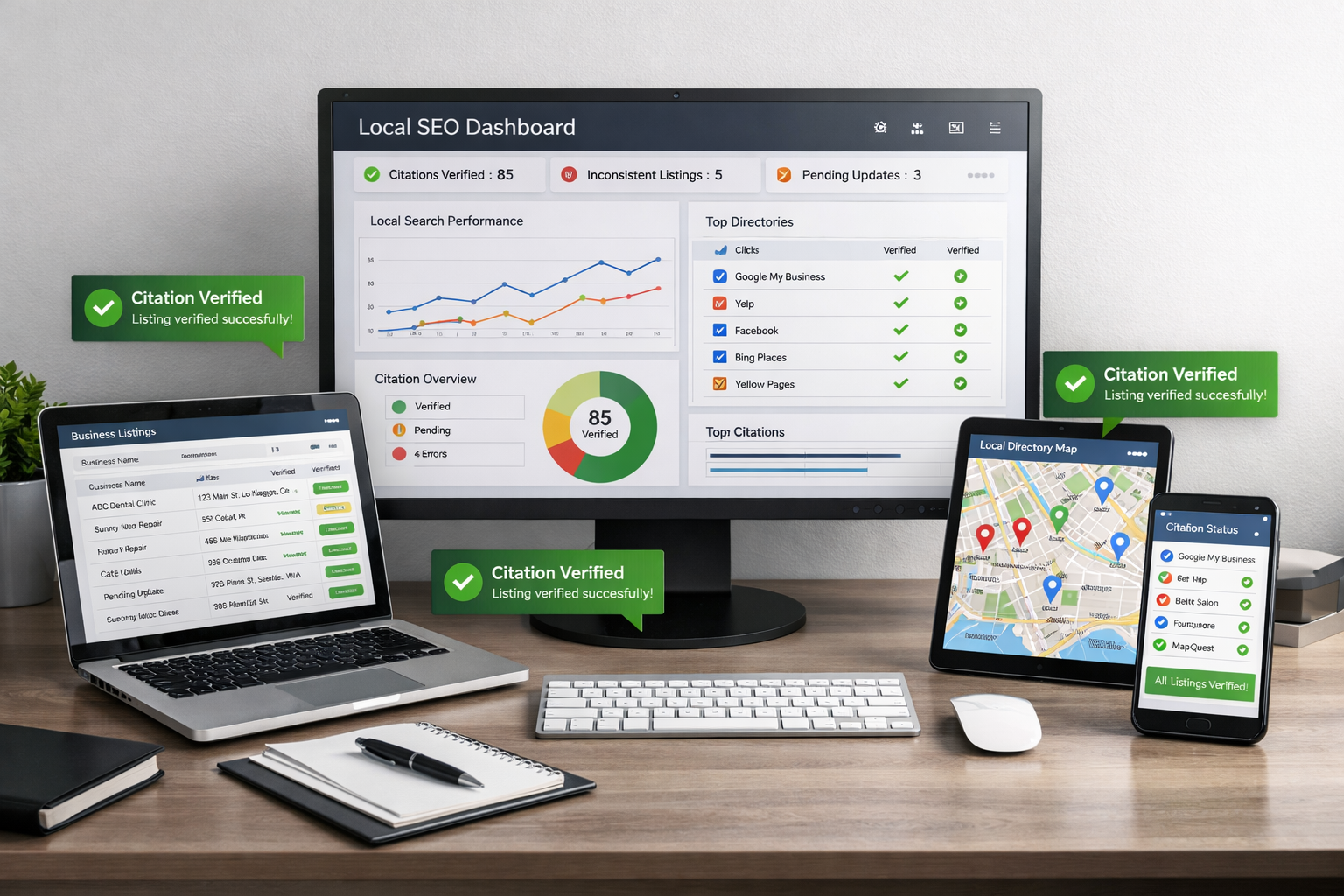Can third-party reviews (like Yelp or Facebook) impact Google rankings?
When small business owners think about SEO, they often focus on their website content, backlinks, and Google Business Profile. But what about third-party review platforms like Yelp, Facebook, or TripAdvisor? Can they actually influence how your business appears in Google search results?
The short answer: yes, they can — indirectly and significantly.
While Google doesn’t publicly confirm that reviews from other sites directly affect rankings, the reality is more nuanced. Third-party reviews contribute to online credibility, visibility, and authority — all of which play major roles in how Google perceives your business.
In this article, we’ll break down how external reviews impact SEO, how Google interprets them, and what your business can do to turn them into a strategic advantage.
Understanding Third-Party Reviews and Their Ecosystem
Third-party reviews are customer feedback left on platforms other than Google, such as:
- Yelp
- Facebook
- TripAdvisor
- Better Business Bureau (BBB)
- Angi, HomeAdvisor, or industry-specific sites
These platforms hold significant power in shaping your online reputation. Even if they don’t belong to Google, their pages often rank highly in search results, meaning they influence what potential customers see when they search for your brand or services.
For example, searching for “best restaurants in Philadelphia” might bring up Yelp results before you even see individual business websites.
That’s a prime example of third-party review authority in action.
For Google, these external reviews serve as validation signals. They show that your business is active, well-rated, and trusted across the web — which helps strengthen your overall SEO footprint.
How Google Evaluates External Review Signals
Google’s algorithm aims to present the most relevant, trusted, and authoritative results to users. To do this, it looks beyond your website. It evaluates your entire digital presence, including third-party review profiles.
Here are some of the review-related factors that Google’s algorithm may consider:
- Reputation consistency: Are your ratings similar across platforms, or do they vary drastically?
- Volume and frequency: Do you consistently get new reviews, showing ongoing engagement?
- Review content quality: Are the reviews detailed, genuine, and descriptive?
- Domain authority of review sites: Are these reviews coming from reputable, high-traffic sites like Yelp or TripAdvisor?
Google’s focus is on E-E-A-T — Experience, Expertise, Authoritativeness, and Trustworthiness. Strong, positive reviews across multiple trusted platforms boost those signals, improving how search engines and customers perceive your business.
The Power of Consistent Ratings Across Platforms
One of the most overlooked SEO elements is review consistency. If your Google profile shows 4.8 stars but your Yelp page is sitting at 2.9, that inconsistency can raise red flags for both customers and search engines.
Inconsistent ratings can:
- Undermine credibility and trust.
- Lead potential customers to doubt authenticity.
- Send mixed signals to Google’s algorithm.
However, when your ratings are uniformly strong across multiple review sites, it reinforces brand trust and stability. Google interprets this as a sign of reliability — which can indirectly improve local rankings and click-through rates.
Consistency also affects brand SERPs (search engine results pages). When people Google your business name, those third-party profiles appear on the first page. Having consistently positive scores there boosts confidence and click potential.
How Yelp Reviews Influence Local SEO
Yelp is one of the most influential third-party review platforms, especially for local businesses like restaurants, salons, and home service providers. While Yelp reviews don’t directly change your Google ranking formula, their impact is powerful in other ways.
Here’s how Yelp contributes to SEO performance:
- High domain authority: Yelp pages rank exceptionally well in Google search results, often outranking smaller business websites.
- Structured data: Yelp uses schema markup that Google can easily read and understand.
- Referral traffic: A strong Yelp profile drives new visitors to your website or physical store.
- Citations and NAP consistency: Your business name, address, and phone number (NAP) on Yelp strengthen your local SEO footprint.
Even though Google doesn’t control Yelp, it recognizes Yelp’s trustworthiness as a review source. So if your business has great engagement and consistent activity on Yelp, Google takes notice — rewarding you indirectly through better visibility and brand credibility.
The Role of Facebook Reviews in Local Search Visibility
Facebook, being one of the largest social media networks in the world, plays a unique dual role: social engagement and local SEO validation.
When users leave reviews or recommendations on your Facebook Business Page, it creates multiple SEO benefits:
- Brand mentions and citations: Facebook reviews are often indexed by Google and can appear in search results.
- Social proof: Engagement metrics (likes, shares, comments) strengthen overall online presence.
- Link traffic: Links to your website in your Facebook profile and posts provide additional referral pathways.
Moreover, because Facebook reviews are public and verifiable, they add another layer of credibility. Google interprets social signals — like interactions and reviews — as part of the broader trust network surrounding your business.
In essence, your Facebook reviews can support your SEO efforts by confirming your legitimacy, helping you appear active, and driving visitors from a trusted platform to your main site or Google Business Profile.
How Industry-Specific Review Sites Impact Rankings
Beyond Yelp and Facebook, industry-specific review platforms can carry heavy SEO weight, especially in niche markets. For example:
- Healthgrades or Zocdoc for medical practices
- Avvo for law firms
- Angi (formerly Angie’s List) for home services
- TripAdvisor for tourism and hospitality
These sites are highly trusted within their niches, often dominating search results for relevant queries. A strong reputation on these platforms can:
- Improve your business’s visibility for long-tail keywords.
- Send valuable referral traffic to your website.
- Enhance perceived expertise and trustworthiness in your industry.
Google recognizes that not all reviews are equal — a five-star rating on an industry-trusted platform often carries more weight than one on a general social site.
Therefore, maintaining consistent engagement and accuracy on these niche review sites can become a competitive differentiator that influences both traffic and ranking potential.
Why Citations and NAP Consistency Matter
While reviews focus on customer feedback, citations — your business’s name, address, and phone number across online directories — are equally important. When third-party review sites include consistent NAP information, they reinforce your legitimacy to search engines.
Inconsistent NAP data (like a different address on Yelp vs. Google) can confuse algorithms, hurting your local SEO performance. Google wants to see clear, verified information across all platforms before ranking a business prominently.
Here’s how to optimize for citation consistency:
- Audit all your business listings (Google, Yelp, Facebook, BBB, etc.).
- Ensure your name, address, and phone number match exactly.
- Keep profiles updated if you move or change contact details.
- Use tools or professional SEO services (like GetPhound) to manage listings efficiently.
Consistency builds trust — and trust builds ranking power.
The Indirect SEO Boost from Review Backlinks and Referrals
Third-party review platforms often include backlinks to your website, and while many are no-follow, they still carry indirect SEO benefits.
Here’s why they matter:
- Referral traffic: Visitors clicking through Yelp or Facebook links signal user interest and engagement.
- Increased brand mentions: Even no-follow links count as brand citations that Google can recognize.
- Behavioral signals: When users spend time on your website after visiting from a review site, it can positively impact engagement metrics like dwell time and bounce rate.
Over time, this steady referral activity strengthens your domain authority and user trust signals — two key elements of sustainable SEO growth.
So while those backlinks may not pass traditional “link juice,” their value lies in traffic quality and brand awareness. Both contribute meaningfully to how Google ranks your site over time.
Managing and Responding to Reviews Across Platforms
SEO isn’t just about having reviews — it’s also about how you interact with them. Responding to reviews on third-party sites reinforces your brand’s activity, responsiveness, and professionalism.
When you consistently reply to feedback:
- You create
fresh, user-generated content on high-authority sites.
- You signal engagement and reliability to both customers and search engines.
- You have opportunities to
organically include keywords and local references in your responses.
For example:
“Thanks, Lisa! We’re so glad you loved your experience at our hair salon in Conshohocken. Our stylists always strive to make every visit special!”
That kind of response naturally includes local SEO keywords while still sounding genuine.
By monitoring and managing reviews on all platforms, you ensure that your digital reputation works for you — not against you.
Building a Unified Review Strategy for Maximum Impact
The key to leveraging third-party reviews for SEO lies in having a unified strategy. Instead of focusing on one platform, small businesses should aim for a balanced approach that includes:
- Regularly requesting reviews from satisfied customers on multiple sites.
- Monitoring all profiles using a central dashboard or professional service.
- Responding consistently and promptly to both positive and negative feedback.
- Analyzing insights from reviews to improve services and content marketing.
A unified approach ensures that your reputation remains strong, your NAP data stays consistent, and your business sends the right signals to Google — across every corner of the web.
This consistency not only strengthens SEO but also improves conversion rates. Customers who see positive, authentic reviews everywhere are far more likely to choose your business over competitors.
Building Trust That Google Can See
Third-party reviews may not directly manipulate Google’s algorithm, but they absolutely influence the ecosystem in which your business operates. Platforms like Yelp, Facebook, and industry-specific directories create powerful trust signals that shape how both customers and search engines perceive your brand.
Consistent, high-quality reviews across multiple sources tell Google that your business is legitimate, reliable, and loved by customers — the very qualities that align with high rankings.
For small businesses looking to strengthen local SEO and reputation simultaneously, the takeaway is clear:
Don’t just collect reviews — manage them strategically, across every platform that matters.
At GetPhound, we help businesses do exactly that. From local SEO optimization to review management and online reputation strategy, our team ensures that your business looks great — everywhere it appears online.
Start building the kind of reputation that Google rewards. Visit https://getphound.com/ to learn more.











